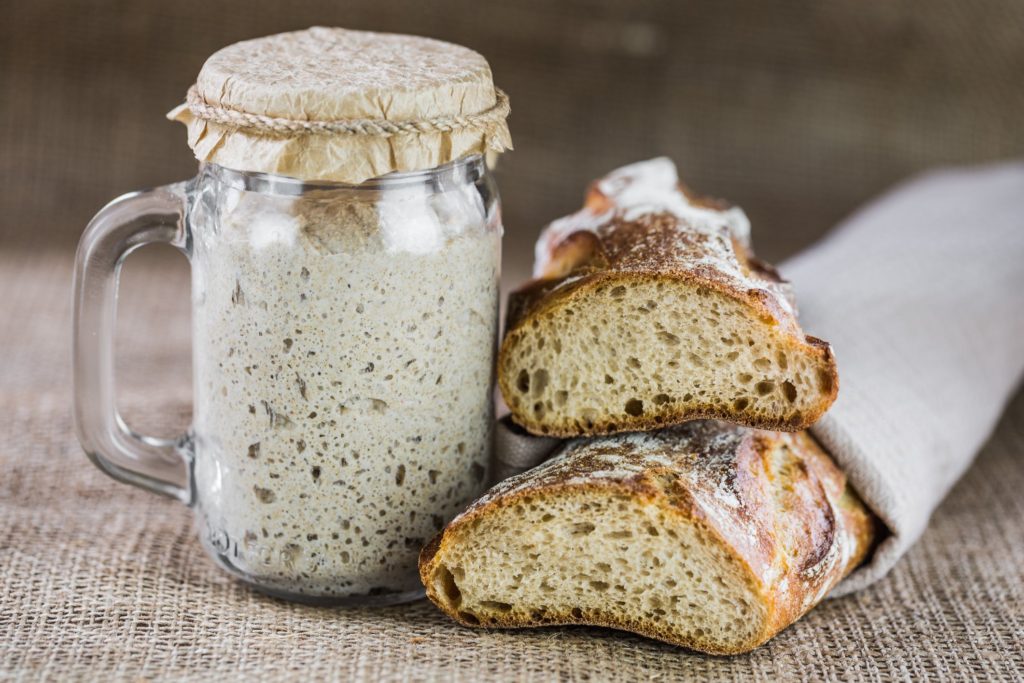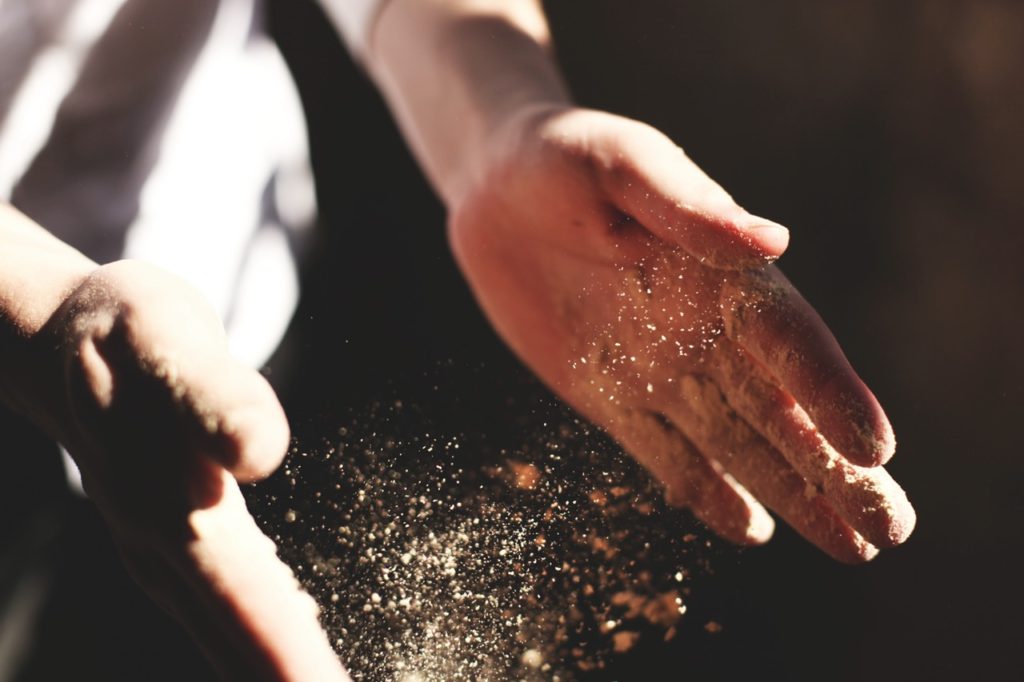And on the fifteenth day of the same month (aviv) is the Feast of Unleavened Bread to the LORD; for seven days you shall eat unleavened bread. On the first day you shall have a holy convocation; you shall not do any ordinary work. But you shall present a food offering to the LORD for seven days. On the seventh day is a holy convocation; you shall not do any ordinary work.
Leviticus 23:6-8
Once the month of aviv and the first day of the month has been determined (to learn more about determining when aviv and the first day of the month is, see the study on Passover), the date on which to observe Passover is made clear and is immediately followed by the next feast. The 15th day of the month of aviv begins the observance of Unleavened Bread, and it continues for seven days. Since it immediately follows Passover, it often gets lumped into one observation today. I have seen many instances where Passover is called a week long observation, but technically, it really is two separate feasts.
During this entire time of the week of unleavened bread, unleavened bread must be eaten.
Seven days you shall eat unleavened bread. On the first day you shall remove leaven out of your houses, for if anyone eats what is leavened, from the first day until the seventh day, that person shall be cut off from Israel. On the first day you shall hold a holy assembly, and on the seventh day a holy assembly. No work shall be done on those days. But what everyone needs to eat, that alone may be prepared by you. And you shall observe the Feast of Unleavened Bread, for on this very day I brought your hosts out of the land of Egypt. Therefore you shall observe this day, throughout your generations, as a statute forever. In the first month, from the fourteenth day of the month at evening, you shall eat unleavened bread until the twenty-first day of the month at evening. For seven days no leaven is to be found in your houses. If anyone eats what is leavened, that person will be cut off from the congregation of Israel, whether he is a sojourner or a native of the land. You shall eat nothing leavened; in all your dwelling places you shall eat unleavened bread.
Exodus 12:15-20
Here is a feast that lasts a week long with some observances that weren’t fully observed in the time that is remembered. For example, upon leaving Egypt, there is no evidence that the people of Israel went searching their homes for leavening or removing it. However, they left in such a hurry that there was no time for their dough to become leavened. The story of what actually happened on the first day of Unleavened Bread – the orginal one – is given to us in Exodus. Immediately following Passover (the night when all of Egypt’s firstborn sons died, but all of the Hebrews were spared) Pharaoh and the Egyptians were in such a haste to get the Hebrew people out of their land that there was no time for their bread to leaven. What they were left with on their journey was unleavened cakes.
The Egyptians were urgent with the people to send them out of the land in haste. For they said, “We shall all be dead.” So the people took their dough before it was leavened, their kneading bowls being bound up in their cloaks on their shoulders. The people of Israel had also done as Moses told them, for they had asked the Egyptians for silver and gold jewelry and for clothing. And the LORD had given the people favor in the sight of the Egyptians, so that they let them have what they asked. Thus they plundered the Egyptians.
And the people of Israel journeyed from Rameses to Succoth, about six hundred thousand men on foot, besides women and children. A mixed multitude also went up with them, and very much livestock, both flocks and herds. And they baked unleavened cakes of the dough that they had brought out of Egypt, for it was not leavened, because they were thrust out of Egypt and could not wait, nor had they prepared any provisions for themselves.
Exodus 12:33-39
The observance of this feast would be extremely difficult to understand if you don’t know what leavening is, or what it means when we are told that the dough did not have time to leaven. We can glean from scripture that it has something to do with dough, and/or cakes, but what is it really?
שְׂאֹרsʾor, seh-ore´; from 7604; barm or yeast-cake (as swelling by fermentation):—leaven.
Leavening is what makes bread rise. Today we take short cuts and use yeast that is dried, but in the time when Israel was leaving Egypt, the leavening used was made and kept through a fermentation process – much like sourdough. As they fled Egypt, the people had no way of maintaining their leavening, and had to resort to eating bread that was flat.
The interesting thing about the length of seven days is that this is also how long it takes to make a sourdough starter. To make a sourdough starter (which serves as the leavening in a loaf of sourdough bread) you begin by making a dough of sorts out of water and flour. Over the span of about seven days, you ‘feed’ this dough by adding more flour and water daily until it begins to bubble. It is at this point that the bacteria or yeast in the dough is strong enough to make an entire loaf of dough rise. However, even at this point, once you have added leavening to a loaf of dough to bake, it still takes several hours for the dough to rise to the point that you are able to bake it. You can see why it would have been difficult to have leavened bread if you are fleeing for your life.

Then Moses said to the people, “Remember this day in which you came out from Egypt, out of the house of slavery, for by a strong hand the LORD brought you out from this place. No leavened bread shall be eaten. Today, in the month of Abib, you are going out. And when the LORD brings you into the land of the Canaanites, the Hittites, the Amorites, the Hivites, and the Jebusites, which he swore to your fathers to give you, a land flowing with milk and honey, you shall keep this service in this month. Seven days you shall eat unleavened bread, and on the seventh day there shall be a feast to the LORD. Unleavened bread shall be eaten for seven days; no leavened bread shall be seen with you, and no leaven shall be seen with you in all your territory. You shall tell your son on that day, ‘It is because of what the LORD did for me when I came out of Egypt.’ And it shall be to you as a sign on your hand and as a memorial between your eyes, that the law of the LORD may be in your mouth. For with a strong hand the LORD has brought you out of Egypt. You shall therefore keep this statute at its appointed time from year to year.
Exodus 13:3-10
In practice of this feast in later years, the period of seven days of keeping leavening out of the homes and territories of Israel and eating unleavened bread began with a gathering of the people and ended with a gathering of people. On both the first and last days of this observance, the only work to be done is the work of preparing meals.
Seven days you shall eat it with unleavened bread, the bread of affliction—for you came out of the land of Egypt in haste—that all the days of your life you may remember the day when you came out of the land of Egypt.
Deuteronomy 16:3
This week of Unleavened Bread is given to us so that we remember what YHVH did for us when He brought Israel out of Egypt. By keeping it, we remember the hardship that was endured as the people fled and their choice to make Him king as they accepted His laws and covenant. It is fitting that this rememberance immediately follows Passover. And as we think of what Yeshua did for us on Passover – freeing us from the slavery of sin – we can see a picture of what leavening symbolizes. As we spend the day after Passover (our redemption from the slavery of sin) getting rid of the leavening in our homes we think of the sins we have allowed into lives that have ruled us and how we treat our brothers and begin determining within ourselves that we will not continue in them. Yeshua’s death freed us from the slavery of sin by making it possible for us to recognize what sin is and avoid it. A lot of times we may think we are living like we should – loving YHVH and our neighbors – and we might be, for the most part, but most of the time, there is a little bit of sin sprinkled in our lives that we need to work on.
Your boasting is not good. Do you not know that a little leaven leavens the whole lump? Cleanse out the old leaven that you may be a new lump, as you really are unleavened. For Christ, our Passover lamb, has been sacrificed. Let us therefore celebrate the festival, not with the old leaven, the leaven of malice and evil, but with the unleavened bread of sincerity and truth.
1 Corinthians 5:6-8

Many times, we might enjoy the little bit of sin that we allow in our lives, and we may think that it isn’t hurting anybody. The truth is, sin ruins our witness. It mars the image of YHVH that we reflect into the world. By seeing how Yeshua lived, how he loved YHVH, and how he treated others and by trying to be like him, we can see the leavening (sin) in our own lives and get rid of it – just as we go through our homes on the first day of Unleavened Bread and get rid of all the leavening (crumbs and all).
When my family observes this week of Unleavened Bread, we keep it as close to scripture as possible. On the first day, we clean our home from leavening and try to get together and have a meal. All week long we prepare meals with unleavened bread and we avoid leavening when we leave the house. The final day, we try to get together again and have a meal together. Throughout this time, we take time to continue our talks that began during Passover about the exodus, and we compare that to what Yeshua’s life and death have taught us. With each temptation to eat the leavening that we avoid and each bite of unleavened bread we eat, we reflect on what kind of sins we may be nursing and meditate on how we need to make adjustments to free ourselves from them. Afterall, once we have been freed, why would we want to enslave ourselves again?